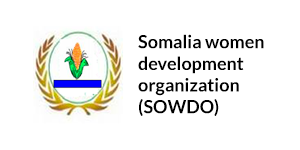
Region: Kismayo
Somalia Women Development Organization (SOWDO)
Somali Women Development Organization (SOWDO) is a non-profit organization based in Kismayo Town, Somalia, with a focus on empowering women and improving the lives of women and children in the Lower Jubba Region of Somalia. The organization’s main objectives are to promote peace, human rights, gender equality, rural water, health, education, environment, and livelihood, with a particular focus on women and children.
SOWDO’s mission is to empower women in both urban and rural areas by promoting their rights through a rights-based approach. The organization aims to achieve this by advocating for peace building, protecting and promoting human rights, promoting education, managing natural resources, and mainstreaming gender through advocacy, networking, and alliance building. The ultimate goal is to achieve a long-lasting peace/stability, democratic society, and sustainable development that could contribute to the improvement of the well-being of Somali women and children in particular and the Somali population in general.
SOWDO works to achieve its mission through various programs and projects, including peace building and conflict resolution programs, monitoring human rights violations, advocacy for human rights, upgrading primary education, preventing and controlling HIV/AIDS/STIs, eradicating harmful practices like FGM, enhancing agriculture, and providing psychosocial care and support. The organization recognizes that empowering women is essential for sustainable development and, therefore, works tirelessly to promote gender equality and ensure that women have access to education, healthcare, and economic opportunities.
SOWDO’s work has had a significant impact on the lives of women and children in the Lower Jubba Region of Somalia. The organization’s peace building and conflict resolution programs have contributed to reducing conflict and promoting stability in the region. SOWDO’s advocacy for human rights and gender equality has helped raise awareness of these issues, leading to policy changes and improved access to services for women and children. Additionally, the organization’s efforts to upgrade education and enhance agriculture have contributed to improving the living standards of women and children in the region.

